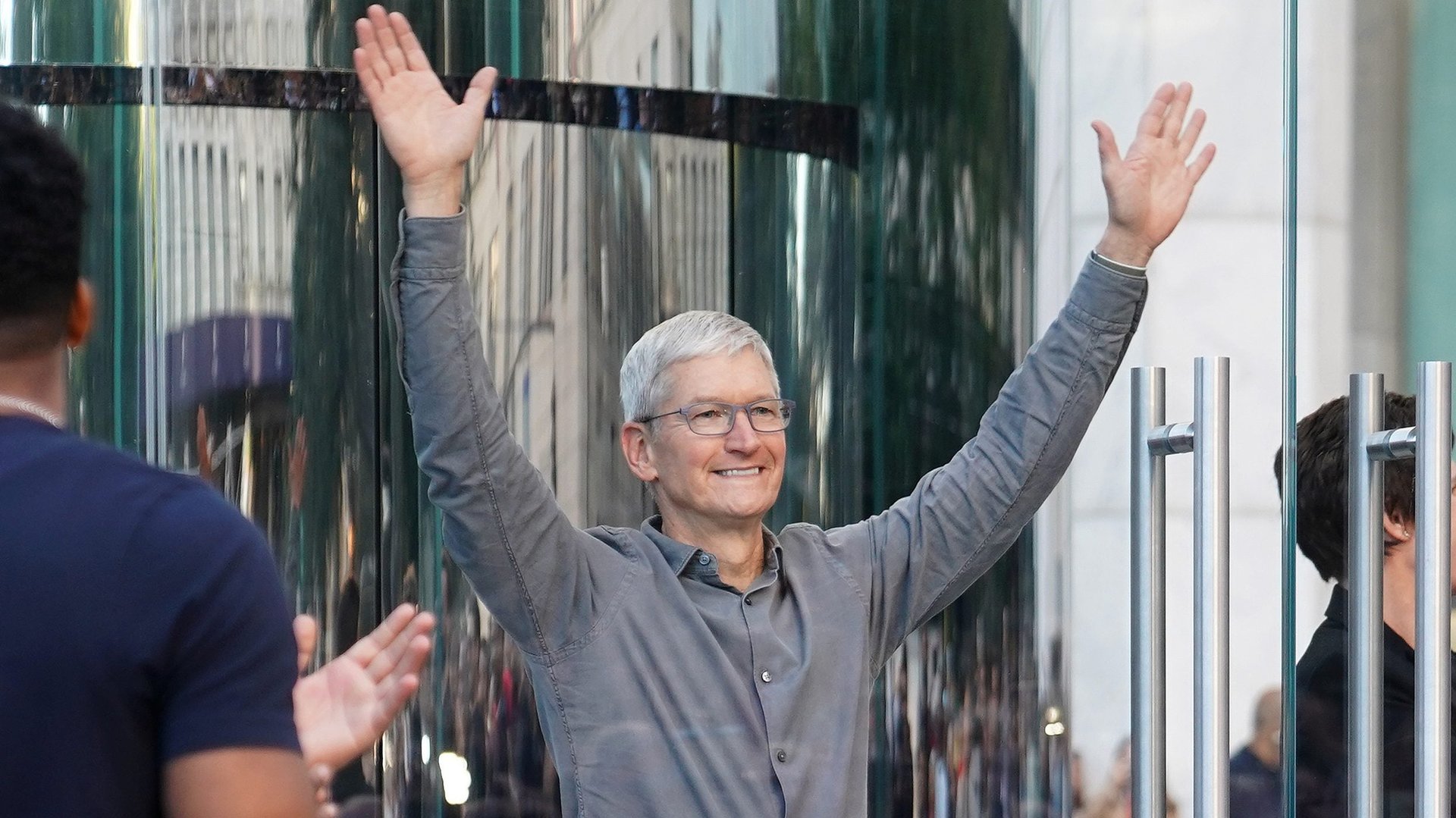Apple’s Tim Cook has pushed CEO activism into uncharted territory
Yesterday, Apple CEO Tim Cook won accolades for making a public and political issue personal.


Yesterday, Apple CEO Tim Cook won accolades for making a public and political issue personal.
As Apple has done in the past, the company filed an amicus brief (“friend of the court”) document to the US Supreme Court on a politically fraught topic, this time in support of the Deferred Action for Childhood Arrivals (DACA) immigration policy.
Introduced in 2012 by then-president Barack Obama, DACA has allowed some 800,000 young people who are undocumented, but came to the US as children, to stay and work in the country. Current US president Donald Trump tried to start phasing out DACA, which he has called “totally illegal,” during his first year in office, but lawsuits against the attempt have blocked that effort, pushing the issue all the way to the Supreme Court, which will begin hearing arguments on the topic next month.
Cook has long supported DACA, even once saying that he would fight for it until his “toes point up, if that’s what it took.” In the brief filed on Oct. 2, he took the unprecedented step of adding his own name—not just Apple’s— to the signatories. So, too, did Deirdre O’Brien, Apple’s senior vice president for retail and people.
Their brief, which noted that 443 DACA recipients (known as Dreamers, after the DREAM Act that sought to address their status) from 25 countries work at Apple, detailed a few of these employees’ personal stories and successes on various Apple teams. It also laid out the business argument for maintaining a diverse workforce, citing studies linking diversity to innovation.
But the briefing didn’t shy away from discussing ethical concerns and abstract ideals about America, either. “We collectively owe it to the Dreamers to hold up our end of the bargain,” the statement said. “It is not just a legal requirement. It is the moral thing to do. Who are we as a country if we renege? What does it say about us as a people to turn our backs on the Dreamers now?”
Naturally, Cook’s choice to sign with O’Brien “as leaders, colleagues, and human beings” made the document newsworthy at a time when amicus briefs have become routinely used as vehicles for corporate virtue-signaling.
Apple also was one of the companies to sign a historic amicus brief in support of US same-sex marriage, in the 2015 Supreme Court case that legalized gay marriage at the federal level. But Cook, who one year earlier had become the first CEO of a major US company to come out as gay, was not a personal signatory to the brief.
His signature on this latest brief raises interesting questions about CEO activism. You could ask, for instance, if it is somehow more honest for CEOs to represent themselves as individuals rather than committing their company on political issues, since obviously not all employees at a given company will agree on hotly debated topics. Or, does the psychological weight of the CEO’s name actually heighten the risk that employees whose values or beliefs are not aligned with those of their CEO (or other co-workers) will feel alienated and or even singled out? We don’t really know how to deal with minority opinions yet, and yet CEOs are forging ahead with activist agendas.
DACA, as it happens, is not a particularly divisive issue in the US. Most Americans support it, making this particular endorsement not that risky or courageous a stand for Cook. But it’s not hard to imagine other, thornier ethical stances on which CEOS will be asked to choose a position, if not by consumers then by employees who are increasingly ready to protest or leak documents in the name of a cause.
At this point, corporate leaders have little choice but to stay politically astute and active, especially those on top of companies like Amazon, Apple, and Microsoft, which are so large and influential that their sprawling interests are intertwined with issues driving global disputes, including immigration, climate change, populism, trade, and censorship.
But it’s not only their unprecedented power and size that makes staying on the sidelines impossible, it’s also the changed expectations of our times, which asks for accountability with consistency.
“Corporate avowals of political ‘neutrality’—which often entail signaling culturally liberal values while lobbying against regulation and weighting donations toward conservative political forces—are now scorned as untenably hypocritical,” Alison Taylor, managing director at social responsibility nonprofit BSR, wrote in a recent piece for Quartz at Work.
Our culture can’t help but make CEOs into heroes or villains, with little room for gray areas or contradictions. And Cook, because he’s not a big limelight guy, is perhaps granted additional goodwill for taking a personal stand like he has on DACA.
Still, if CEOs are going to add the clout of their celebrity identities to the conversation, they eventually will be forced to decide exactly how democratically they want their companies to be run. And that will get complicated. But in the absence of political leadership on a great many issues, they are at least making their companies a platform through which people can push for political change.
Read the entire amicus brief below: